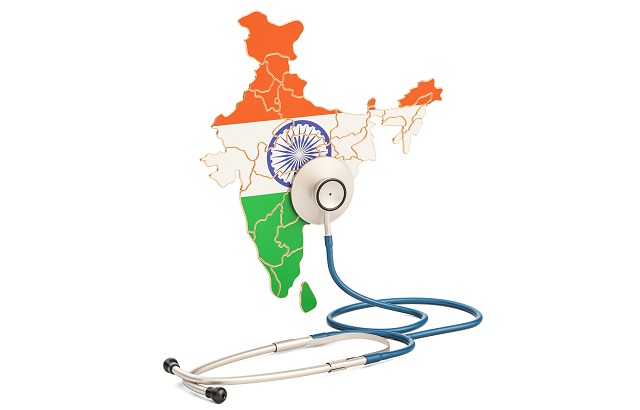THE MEDICAL TERMINATION OF PREGNANCY (AMENDMENT) BILL, 2020
Author: Niharika Kalyan
INTRODUCTION
A number of writ petitions have been filed before Supreme Court and different High Courts for seeking approval of terminating pregnancies beyond the present gestational limit of 20 weeks on grounds of foetal abnormalities or pregnancies as a result of sexual violence faced by women. In response to which, the legislature passed ‘Medical Termination of Pregnancy Amendment Bill 2020’ which seeks to amend the section 3 of MTP Act 1971. It has been passed by the Lok Sabha on March 17, 2020 and by the Rajya Sabha on March 16, 2021. The original MTP Act was made on the recommendations of Shantilal Shah Committee in 1971 which sought to decriminalize the abortion seeker and medical practitioners, if performed as per the provisions of this Act. Dr. Harshvardhan, while presenting the bill, along with Ministry of Law and Justice was duly satisfied that the said bill shall ensure security and well-being of women and will broaden the scope for them to opt for safe and legal abortions avoiding poor quality of care. It shall also help in reducing maternal and infant mortality rates and morbidity caused by unsafe abortions and its complications.
The Amendment bill seeks to increase the gestational limit from 20 weeks to 24 weeks for termination of pregnancy and to strengthen the access to a comprehensive abortion care under strict conditions, without compromising with the service and quality of safe abortions. The opinion of two doctors shall now be required for termination of pregnancy of 20 to 24 weeks as against earlier limit of 1. They should be satisfied that there would be a risk of grave injury or threat to life of women in continuance of the said pregnancy or in case the child is born, would suffer from some physical or mental abnormality. Explanation 2 to Sec. 3(2) clearly states that where the pregnancy is caused on account of rape, it shall be presumed to constitute a grave injury to the mental health of the pregnant woman.
However the upper limit of 24 weeks shall not be applicable where termination of the pregnancy is necessitated by diagnosis of any substantial foetal abnormalities, diagnosed by medical board. The Medical Board shall comprise of a gynaecologist, a paediatrician, a radiologist or sonologist and other members as notified by the respective state government. Identity of the woman shall not be disclosed to anyone except the person authorised by law. Contravention of this provision would attract punishment of imprisonment, which may extend to 1 year or fine or both.
ANALYSIS
- Weighing the rights of foetus and the woman.
The women or girls seeking the termination did not become pregnant by their own will but on account of unfortunate instances such as rape or unsoundness of mind. They were unaware for 20 weeks. They should have the right to decide for themselves and their bodies. But there is a corresponding duty of the state to protect the life of foetus as guaranteed by Article 21 of the constitution. There is a need to have a balancing line between these two.
- Availability of Qualified Doctors
Everyone is well aware of the shortage of health professionals in medical sector. This Amendment Bill provides for establishment of a medical board which would include experts also but it did not address such shortage especially of the experts and that too in rural areas. There is a need to examine the requirement of members nominated by the state. The National Health and Family Survey reveal an astonishing figure of only 53 per cent of abortions being performed by the registered medical doctors and the rest by midwives etc. The National Health Profile of 2017 shows that India has merely one million qualified doctors for a population of 1.3 billion people.
- No time frame
The disturbing part is that no timeframe is stipulated in the bill for taking the decision by this medical board. If there is no meeting of the board or if one of the doctors or members is not available, then it will take unlimited time to take the decision. But waiting beyond a period of 24 weeks will be a health hazard for the pregnant woman. She again will not have any recourse rather than knocking the doors of court for justice. Therefore instead of this rigorous process, there should be a simple and dignified procedure for women.
- Rules for Formation of Board
The Amendment bill provides that formation and functions of the board shall be regulated by the rules. The rules shall specify two things. First, it shall define the certain categories of women seeking opinion from two doctors for termination of pregnancy between 20 to 24 months. The issue is if the parliament has got absolute power to legislate on such matters, is it actually necessary to delegate the power to the government of formation of rules. If there is any delay in formation of the Medical Board, what is the remedy available to a victim?
- Confidentiality of the woman’s identity
The doctor should not disclose the name of the victim or the girl who comes for termination of her pregnancy. If he acts in contravention of the said provision, then it will be punishable under the IPC. But it is in direct contravention of the POCSO Act wherein a doctor has to inform the police in case a minor girl, who is a victim of sexual harassment and has ended up being pregnant, comes for termination of her pregnancy. Thus, clarity needs to be established between such points of conflict.
- Such incident and court proceedings have a grave psychological impact on the women. To address such issues, a psychiatrist should also be included in the committee. Fast Track court should be set up to ensure faster delivery of justice to the victim.
CONCLUSION
This Bill is the need of the hour for a good reproductive health of women. The objective of this Bill is the protection of health of women and safe abortions. It takes care of the dignity and honour of women. However, there is an acute shortage of doctors, especially Gynecologists’, all over India. In rural areas, this shortfall is even more. Therefore, more and more doctors should be posted in rural areas and adequate medical and healthcare facilities should be provided at the panchayat level in the villages. Appropriate training programmes should be conducted and ASHA workers must be trained in rural areas so that they can create awareness among the girls and women in the village.


